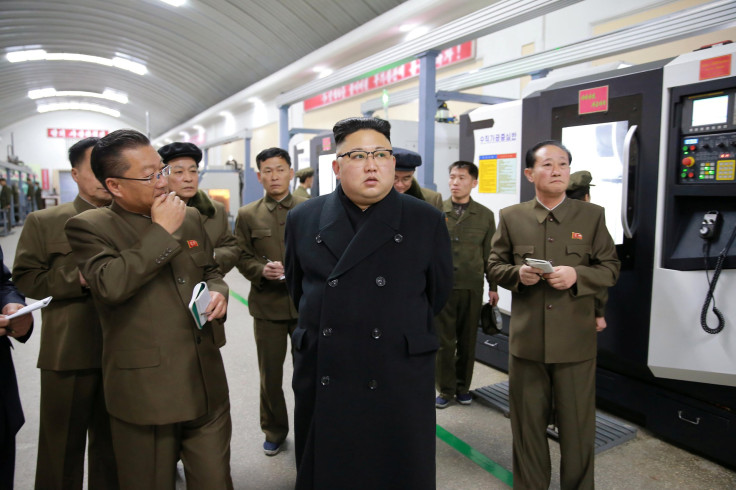Is Kim Jong Un A Legitimate North Korea Leader? Japanese Family Ties Eyed In Half-Brother's Assassination

North Korean leader Kim Jong Un may have been motivated to assassinate his exiled half-brother Kim Jong Nam based on both the ruler's familial ties to Pyongyang's nemesis, Japan, as well as his elder sibling's own relationship to China, sources have suggested.
Kim Jong Un shared paternal heritage with Kim Jong Nam. Kim Jong Nam was passed on for the North Korean leadership after spending a decade abroad embracing a foreign lifestyle, while Kim Jong Un's mother ascended to the position of de facto first lady. In doing so, she ensured one of her own sons would replace her husband, former North Korean leader Kim Jong Il, North Korea leadership expert and 38north contributor Michael Madden told BBC News Tuesday.
Soon after Kim Jong Il died in 2011, Kim Jong Un became the new leader and Kim Jong Nam left the country. While no evidence has emerged yet linking the North Korean leadership to Kim Jong Nam's poisoning Monday in a Malaysia airport, there was evidence suggesting Kim Jong Un may have had political interests in silencing his estranged half-brother.
Kim Jong Un's mother, Ko Yong Huo, was an ethnic Korean born in Japan and her family background may have technically deemed her and her sons eligible for imprisonment under North Korean law, according to Ken Kato, director of the Tokyo-based group Human Rights in Asia. Kato said his organization uncovered documents in 2012 allegedly revealing Ko's father and Kim Jong Un's maternal grandfather had worked in a Japanese sewing factory that produced uniforms for the Japanese military, which occupied the Korean Peninsula during World War Two.
“Technically, Kim Jong Un could have been defined as a traitor and could be in a labor camp,” Kato told The Tokyo Times Monday. “So we can infer that Jong Un might have been planning on killing his elder brother as he could threaten his status.”
Connections to the Japanese military were reportedly considered a crime in North Korea and could have questioned Kim Jong Un's legitimacy as leader. Meanwhile, Kim Jong Nam had struck a relationship with a Japanese journalist Yoji Gomi. Gomi would go on to author a 2012 book entitled "Kim Jong Nam: My Father, Kim Jong Il and Me" in which Kim Jong Nam described his relationship to North Korea in extensive detail and criticized his half-brother's politics. Aware of the risks associated with this position, Kim Jong Nam and his family lived under Chinese protection.
Beijing is Pyongyang's only regional ally. However, it has expressed frustration over North Korea's nuclear program. In the event that China sponsored a plot to remove Kim Jong Un from power, Kim Jong Nam may have been the most convenient successor, TIME reported Wednesday, quoting Chinese intelligence officials who reportedly told the outlet that Chinese President Xi Jinping met with Kim Jong Nam to “size him up.” Kim Jong Nam's position as the most likely person to succeed Kim Jong Un may have marked him for death.
Malaysian authorities were still attempting to piece together what exactly happened to Kim Jong Nam. Investigators have confirmed he was killed by poisoning and several arrests have been made in connection with the fatal attack. Police have also said that a post-mortem examination had been completed, but had yet to release the details to the public.
© Copyright IBTimes 2025. All rights reserved.






















